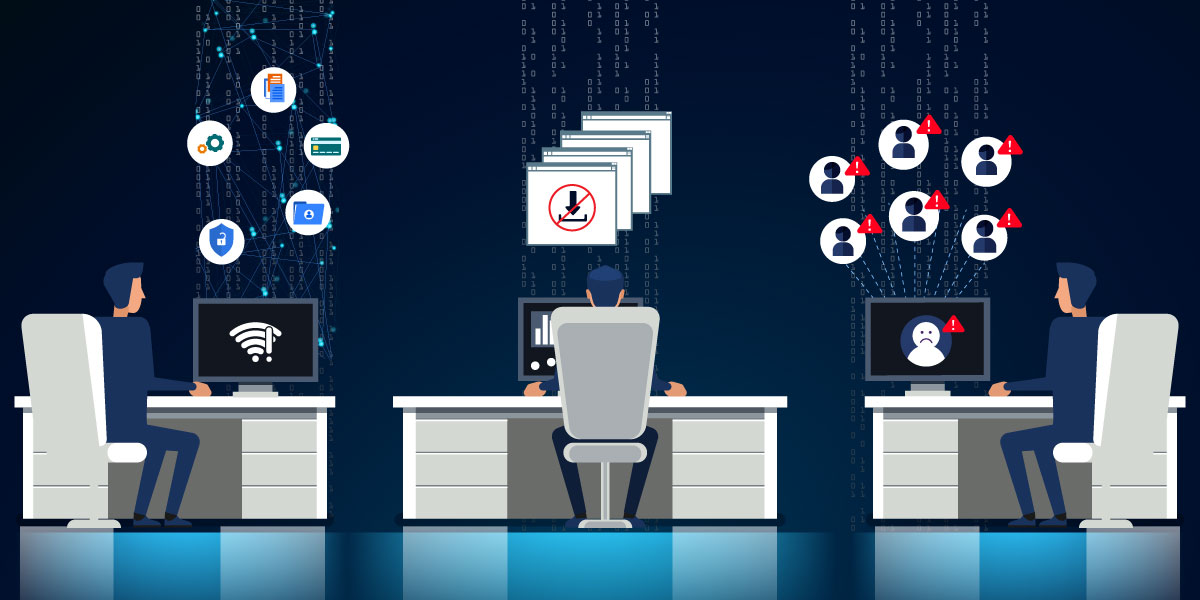Weeks before, there were ripples in the Indian political scenario over an allegation of state-sponsored attacks on select opposition party leaders. The ruling government promptly pledged to investigate these allegations. The entire debacle began when Apple notified high-profile political figures of the country about a state-sponsored cyber attack and advised enabling lockdown mode for added security. However, such a warning, which reads severe to anyone, is familiar to iPhone users, as many have received it on numerous occasions post-2019, especially after the Israel-based spyware Pegasus came to light.
Interestingly, NSO’s Pegasus is not the only company notoriously known for making spyware for Apple-designed smartphones. Paragon’s Graphite and many others, which can be found with a simple Google search, work on the same principle.
The question arises here whether Apple’s iPhones are so secure that they are vulnerable only to sophisticated state-sponsored attacks or as vulnerable as other smartphones in the market.
How secure is the iPhone?
Of course, iPhones are more secure than the horde of Android devices for an array of homegrown security features such as restricted codes, strict app-verification process, robust data encryption, regular updates, secure enclave, sandboxing, and more.
Even though, like any software designed and coded by humans, Apple’s software, too, is susceptible to glitches. Of course, the innovative company addresses such vulnerabilities promptly once they are discovered or reported. Still, if any threat actor locates it before that, you know what is supposed to happen.
A classic example of this can be seen in the various jailbreaks available for Apple devices, including the Pegasus and Graphite spyware. For unfamiliar people, jailbreaking an iPhone dismantles iOS restrictions, allowing users to unlock secret features and apps. Furthermore, it enables the installation of unauthorised changes and apps, extensive customisation beyond what Apple officially permits, and more user control. However, jailbreaking is often seen in a negative light for various reasons.
Here is a list of topics challenging Apple’s claims of being the most secure.
Zero Day Clicks
Zero-day clicks are vulnerabilities that can infect and offer complete or partial control of a device without the victim needing to do anything, such as clicking a link or downloading a file. The term came into the iPhone world when they filed a lawsuit in 2021 against NSO group, notoriously known for its surveillance tool Pegasus. Once infected, Pegasus could gain complete access, including the files, photos, videos, and other sensitive information archived on the phone. And it’s not only Pegasus; anyone accessing the vulnerability could do that.
Apple repaired the bug instantly, but the cat-and-mouse game continued. Citizen Lab found two zero-day vulnerabilities, CVE-2023-41064 and CVE-2023-41061, that could infect an upgraded iPhone running iOS 16.6, which Apple fixed in a quick security update. A ‘zero-click’ operation, BLASTPASS, exploited these vulnerabilities to install NSO Group’s Pegasus spyware on patched iPhones.
In 2023, Apple patched over eighteen zero-day click vulnerabilities found in iOS, macOS, iPadOS, and watchOS, which runs in iPhones, MacBooks, iPads, and Apple watches, literally all the devices that Apple sells under its brand.
Not a Vulnerability- The BLE Attack
Apple offers many innovative technologies and features to enchant customers and potential customers, and Bluetooth low energy (BLE) is one of them. Designed to use less power than classic Bluetooth, BLE helps Apple devices run for a long time and transmit data with lower latency than traditional Bluetooth devices. Apple also uses BLE to implement its proprietary services, such as iBeacon for location awareness, specific range-based interactions, and Continuity features, allowing seamless experiences between Apple devices.
However, the technology was recently found vulnerable in a recent incident where visitors to Def Con 2023 were surprised when their iPhones displayed bizarre popup messages asking them to share their Apple ID and passwords with neighbouring Apple TVs.
The messages were not a hack but part of a research project designed to raise awareness of a hidden vulnerability in iPhone users’ habit of always keeping Wi-Fi and Bluetooth on.
The entire thing is triggered through a custom $70 device that includes a Raspberry Pi Zero 2 W, two antennas, a portable battery, and a Linux-compatible Bluetooth adapter, with capabilities to impact devices within a 50-foot radius.
SDR- The DoS Attack
On another occasion, Jeroen van der Ham, associate professor of Cyber Security Incident Response in the Design and Analysis of Communication Systems (DACS) group at the University of Twente, Netherlands, found his iPhone flashing popups “every few minutes” following a reboot. He asserted the much-shouted lockdown mode even came to help. Later, he found a mysterious fellow passenger influencing his device and many others in the same train compartment through Flipper Zero, a roughly $200 handheld gaming console-type minuscule device.
The hacker developed a script to carry out the Bluetooth advertising packet spamming assault, and composing a similar attack using software-controlled radio (SDR) might continue in the future as devices such as Flipper or HackRF One could efficiently hack iPhones among many other devices, including laptops and Android phones.
Hedge Your Bets
Bluetooth low-energy (BLE) and software-defined radio (SDR) are typically used for wireless communication in many devices. But they can also be used to attack systems. Here are some ways to protect your systems from such attacks:
- Update Software Regularly: Always update your software and firmware as soon as they become available. The updates usually include security patches that can fix any known weak spots.
- Switch Off Extra Services: Turn off non-essential services like Bluetooth and Wi-Fi to make your device safer. This way, an attacker has fewer ways to access it.
- Choose Trustworthy Security Products: Use trusted brands like K7 Security. Their Antivirus for iOS protects against identity theft, phishing scams, fake websites, and other attacks.
- Check Device Settings Regularly: Check your device settings often to ensure no unwanted changes have been made.











